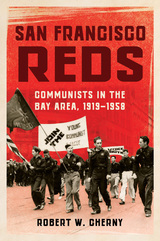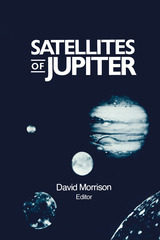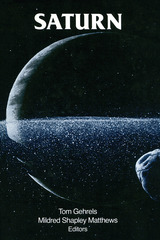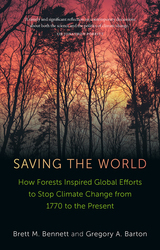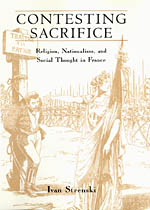
Strenski suggests that the annihilating spirituality rooted in the Catholic model of Eucharistic sacrifice persuaded the judges in the Dreyfus Case to overlook or play down his possible innocence because a scapegoat was needed to expiate the sins of France and save its army from disgrace. Strenski also suggests that the French army's strategy in World War I, French fascism, and debates over public education and civic morals during the Third Republic all owe much to Catholic theology of sacrifice and Protestant reinterpretations of it. Pointing out that every major theorist of sacrifice is French, including Bataille, Durkheim, Girard, Hubert, and Mauss, Strenski argues that we cannot fully understand their work without first taking into account the deep roots of sacrificial thought in French history.

Unique among readers in American political and social thought, From Many, One is a broad and balanced anthology that explores the problem of diversity and American political identity throughout American history. From the classic texts of the American political tradition to diverse minority writings, this book offers a wide spectrum of ideas about identity, gender, immigration, race, and religion, and addresses how these issues relate to the concept of national unity.
Covering the gamut of viewpoints from majority to minority, from conservative to radical, from assimilationist to separatist, the authors range from the Founding Fathers to Frederick Jackson Turner, from Abigail Adams to bell hooks and Catharine MacKinnon; from Abraham Lincoln to Malcolm X; from Roger Williams to Ralph E. Reed.
Sinopoli's extensive introductory and concluding essays set the context for and draw out the implications of the fifty readings. The conclusion includes case studies of three minority groups—homosexuals, Mexican-Americans, and Chinese-Americans—to illustrate further the themes of the volume. Brief introductions to each reading and to each of the five sections provide background information.
In examining one of the central questions of American public life—the issue of national diversity—From Many, One will be a useful text for courses in American political thought, sociology, American Studies, and American history.

Not since the works of Lovejoy and Burt has a scholar attempted such a grand-scale inquiry into the idea of law as the vehicle of culture and social and moral thought. Donald Kelley's major premise is that law and the theory and practice of jurisprudence—civil science—represent the most concrete efforts to find a human measure, a systematic practical philosophy broader than political theory, that will allow us to understand, and perhaps control, the human social condition.
This masterful inquiry into the Western legal tradition, its formation, reformation, and transformation over two thousand years, traces the social and cultural thought of jurists and legal philosophers from Greek roots and Roman foundations to the nineteenth and twentieth centuries. Kelley examines the revival of civil science in the Middle Ages, its extension in terms of the natural cultures of modern Europe, its conflicts with European customs, and its philosophical reformulation as modern natural law. He illuminates the role of civil science in the debates over legal codes, its investigation and rehabilitation by the nineteenth-century historical school, and finally its rivalry with and relationship to the modern sciences of society and culture.
Kelley successfully broadens the perspective of political theory to encompass social and cultural dimensions and, in doing so, opens up a new intellectual continent for scholars and students of history, philosophy, and law. This is a work of unparalleled scholarship by one of the most original historians writing today.
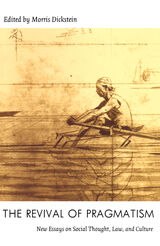
As the twenty-five intellectuals who take part in this discussion show, pragmatism has become a complex terrain on which a rich variety of contemporary debates have been played out. Contributors such as Richard Rorty, Stanley Cavell, Nancy Fraser, Robert Westbrook, Hilary Putnam, and Morris Dickstein trace pragmatism’s cultural and intellectual evolution, consider its connection to democracy, and discuss its complex relationship to the work of Emerson, Nietzsche, and Wittgenstein. They show the influence of pragmatism on black intellectuals such as W. E. B. Du Bois, explore its view of poetic language, and debate its effects on social science, history, and jurisprudence. Also including essays by critics of the revival such as Alan Wolfe and John Patrick Diggins, the volume concludes with a response to the whole collection from Stanley Fish.
Including an extensive bibliography, this interdisciplinary work provides an in-depth and broadly gauged introduction to pragmatism, one that will be crucial for understanding the shape of the transformations taking place in the American social and philosophical scene at the end of the twentieth century.
Contributors. Richard Bernstein, David Bromwich, Ray Carney, Stanley Cavell, Morris Dickstein, John Patrick Diggins, Stanley Fish, Nancy Fraser, Thomas C. Grey, Giles Gunn, Hans Joas, James T. Kloppenberg, David Luban, Louis Menand, Sidney Morgenbesser, Richard Poirier, Richard A. Posner, Ross Posnock, Hilary Putnam, Ruth Anna Putnam, Richard Rorty, Michel Rosenfeld, Richard H. Weisberg, Robert B. Westbrook, Alan Wolfe
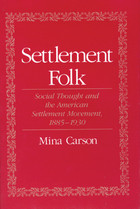
These extraordinary individuals left an enduring legacy of beliefs about professional and voluntary responsibility for welfare services. As Carson shows, however, their genius for image creation and their myriad connections with other intellectual and social leaders extended the influence of the settlement ideology in many directions: fostering new attitudes toward the American city and the equality of the sexes, initiating a new social-scientific approach to social problems, and shaping the self-definition of the American educated middle class.
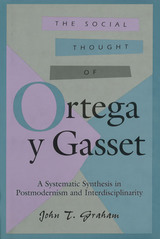
The Social Thought of Ortega y Gasset is the third and final volume of John T. Graham's massive investigation of the thought of Ortega, the renowned twentieth-century Spanish essayist and philosopher. This volume concludes the synthetic trilogy on Ortega's thought as a whole, after previous studies of his philosophy of life and his theory of history.
As the last thing on which he labored, Ortega's social theory completed what he called a "system of life" in three dimensions—a unity in the plurality of philosophy, history, and sociology as three fundamental disciplines that enter into and overlap each other and other humanities. In this volume, Graham investigates Ortega's social thought as expressed in his central work, Man and People, and in several pragmatic fields (politics, culture, education, and religion), interpreting it all in terms of comprehensive categories of postmodernism and interdisciplinarity. While others have studied Ortega's social thought and recently his postmodernity, no one has done so in the context of his thought as a whole or by such a variety of methods.
The "unity in plurality" of Ortega's system is evident in the broad and varied structure of his sociology, which he intended to serve for postmodern times. His own postmodernism was rooted in Nietzsche but also in the pragmatism—from James, Peirce, and Dewey—that informs all parts of this trilogy.
Ortega was the first educator with an interdisciplinary theory and practice—another aspect of the "unity in plurality" of his system. He found inspiration in both ancient and modern precedents for what he saw as a postmodern method of investigating themes and problems that are common to all the human sciences. Innovations at his Institute of Humanities were early postmodern precedents for a new interdisciplinary social method for use by specialists in a variety of fields. All of those interested in Ortega can utilize such methods to elucidate his thought as a whole as well as to pursue their own collaborative work.
READERS
Browse our collection.
PUBLISHERS
See BiblioVault's publisher services.
STUDENT SERVICES
Files for college accessibility offices.
UChicago Accessibility Resources
home | accessibility | search | about | contact us
BiblioVault ® 2001 - 2024
The University of Chicago Press


